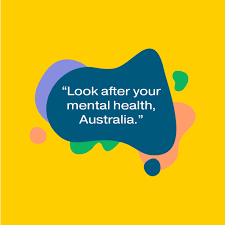Eating a healthy dinner helps make you feel good and complete your food intake for the day.
Disclaimer: The following information is general in nature and does not take into account your personal situation
A HEALTHY DINNER IS ALWAYS A WINNER
Eating a healthy dinner that provides a well-balanced meal is important to:
- Unwind after the challenges of your day
- Provide your body with the energy and nutrients it needs
- Reduce your risk of diet-related chronic diseases
Tip: Try making small, practical changes at dinnertime with healthy meal recipes that work for you.
GOOD FOOD EQUALS GOOD MOOD
Meals that include wholesome foods have been shown to boost your mood as well as your overall health. Aim for a healthy dinner plate with a balance of items from different food groups that includes:
- ¼ plate of lean protein e.g. meat, fish, chicken, tofu
- ¼ plate of healthy carbs e.g. brown rice, pasta, potato, sweet potato
- ½ plate of veggies e.g. leafy greens, asparagus, broccoli, brussels sprouts, baby corn, carrots, capsicum, celery, cucumber, eggplant, sugar snap peas, tomatoes
Tip: If your schedule means a late dinner, make healthy food choices and aim to eat a lighter meal
Check out other posts in our Fuel Your Body series for tips about healthy food choices, such as breakfast, lunch, snacks, shift work – tips for healthy eating and food labels.
TIPS FOR EATING HEALTHY DINNERS
Firstly, planning your dinners in advance will make your shopping easier. Also, it will help you manage your budget and ensure dinners give you the nutrients you need. In addition:
- Include three to four foods from different food groups
- Cook large amounts and freeze some individual portions to eat later
- Stock your pantry with some basics that let you whip up an easy meal on busy nights
- Check out your local supermarket for quick and healthy meal ideas with free cookbooks available in-store and recipe ideas on their websites
- You can also find lots of health recipes online by searching “easy healthy dinner ideas”
For further information visit: eatforhealth.gov.au/ or health.gov.au/health-topics/food-and-nutrition
WELLNESS GOES 24/7
Labourpower values your health and wellbeing and is committed to wellness in the workplace. We are proud to partner with Workactive to bring you safety and wellbeing programs throughout the year.
We look forward to bringing you more health and wellbeing tips as part of our FUEL YOUR BODY series.
Look out for our regular Toolbox Tuesday and Wellness Wednesday posts on Facebook, LinkedIn and the Labourpower website.
